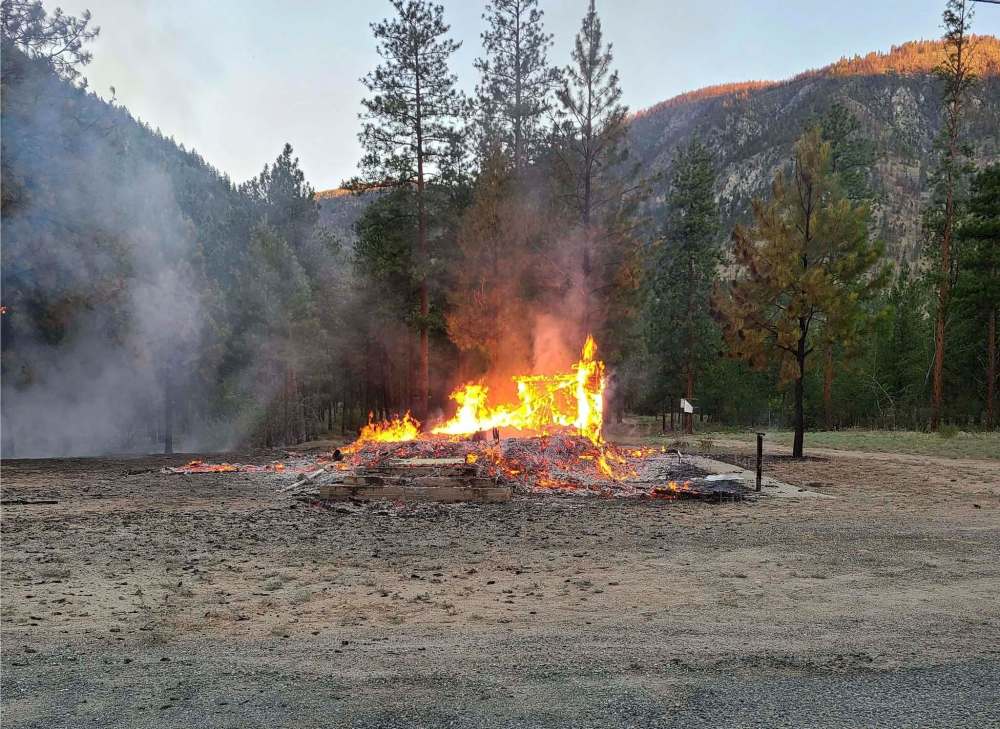No burning churches on road to reconciliation
Advertisement
Read this article for free:
or
Already have an account? Log in here »
To continue reading, please subscribe:
Monthly Digital Subscription
$0 for the first 4 weeks*
- Enjoy unlimited reading on winnipegfreepress.com
- Read the E-Edition, our digital replica newspaper
- Access News Break, our award-winning app
- Play interactive puzzles
*No charge for 4 weeks then price increases to the regular rate of $19.00 plus GST every four weeks. Offer available to new and qualified returning subscribers only. Cancel any time.
Monthly Digital Subscription
$4.75/week*
- Enjoy unlimited reading on winnipegfreepress.com
- Read the E-Edition, our digital replica newspaper
- Access News Break, our award-winning app
- Play interactive puzzles
*Billed as $19 plus GST every four weeks. Cancel any time.
To continue reading, please subscribe:
Add Free Press access to your Brandon Sun subscription for only an additional
$1 for the first 4 weeks*
*Your next subscription payment will increase by $1.00 and you will be charged $16.99 plus GST for four weeks. After four weeks, your payment will increase to $23.99 plus GST every four weeks.
Read unlimited articles for free today:
or
Already have an account? Log in here »
Hey there, time traveller!
This article was published 05/07/2021 (1617 days ago), so information in it may no longer be current.
Resentment against the institutions that operated residential schools is understandable, but burning down churches is never right.
Four churches in British Columbia were destroyed recently in fires the RCMP have understatedly described as “suspicious.” Another church in Alberta also burned, and one on a Nova Scotia First Nation was damaged by fire. Police need to be cautious in their public diagnosis of the fires while investigations are underway, but these blazes were much more than “suspicious.” A look at the circumstances makes it clear: these churches were not razed by acts of God, but by the actions of arsonists.
The presence of accelerant in the charred rubble is an obvious clue. So is the timing, with the four B.C. fires set amid widespread outrage at the discovery of unmarked graves at former Catholic-run residential schools in B.C. and Saskatchewan. The likelihood the churches were burned as an act of revenge is reinforced by the locations of the targeted churches: two on reserves in B.C.’s Similkameen Valley and two on Indigenous land in B.C.’s interior.

Indigenous spokespeople and their allies expressed growing frustration with the Catholic church in recent weeks as the Vatican and Pope Francis sidestepped demands for an unconditional apology for the hundreds of children who died while in the church’s care and whose bodies were not returned to their families. But no Indigenous leaders urged anti-Catholic retaliation of a criminal bent, such as torching churches.
In fact, some Indigenous people condemned, rather than condoned, the destruction because the churches in question were attended by band members, and because the fires could easily have endangered lives by spreading to homes adjacent to the churches.
Chief Keith Crow of the Lower Similkameen Indian Band said, “The church burning is devastating to our community. Some of our members attended church. Memories were made at the church. There have been weddings in the good times and funerals held there in the bad times.”
Perhaps the arsonists intended to send a message to the Catholic hierarchy that it must be accountable for the continuing intergenerational trauma, suffering that began with children being ripped from their family homes and institutionalized under inhumane conditions aimed at religious conversion and annihilation of their Indigenous birthright and culture.
Recent weeks have seen a public groundswell of support for Indigenous victims of residential schools, and their descendents. The atrocities at residential schools, and the fact many children died and were buried on school grounds, is common knowledge for those who have followed academic efforts to correct history with unvarnished accounts of Canada’s mistreatment of Indigenous people, culminating in the report of the Truth and Reconciliation Commission.
But it took recent media coverage of the discovery of unmarked graves to create more widespread public attention and enlist broader support from non-Indigenous Canadians for Indigenous reconciliation efforts.
For example, an Ipsos poll has found that 77 per cent of Canadians now believe there should be a national day of remembrance for the victims of residential schools.
Such public support is a key element in persuading governments, which pay close attention to the winds of public opinion, to pledge sufficient funding for future research of residential school atrocities. The mood of the public can be mercurial, however, and it’s likely a great many Canadians won’t support a spree of church arsons that destroy property, endanger people and flout the rule of law.
There are effective ways to remind the public about the horror of residential schools, but burning churches does nothing to advance this noble and necessary cause.


